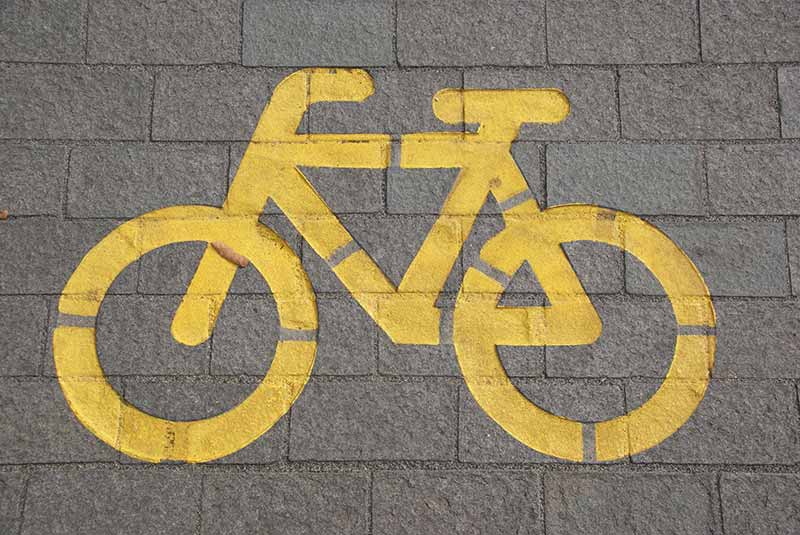What exactly is meant by nudging toward sustainable behavior? The constantly growing and unmissable Environmental problems of our time no longer allow two opinions: we have to rethink and adapt our consumer behavior. The longer we wait, the harder the transition will be. So-called nudges can make a significant contribution to people acting in a more environmentally friendly way.
In this article, I would therefore like to give you everything you need to know about nudging to promote sustainable behavior. From the definition, to reasons, examples, measures and criticism. Let's go!
In advance you will find here a short Table of contents about the contribution:
What is meant by nudging in relation to sustainability and environmental protection?
With the help of nudging (also called "green nudging") to persuade people in the simplest possible way, either once or permanently, to adopt a certain, more sustainable behavior.. Often, this influence is not even noticed by the persons acting, because the influence is usually only very subtle. Nudges are in themselves political instruments and measures that are based on psychological findings and are able to steer a person's decision-making setting toward more sustainable action.
They function primarily through individual, psychological factors such as self-interest, short-term thinking, status orientation, social imitation or sensory perception.₁.
Why is nudging even necessary?

Nudging is therefore intended to change our consumer behavior in a positive way. But why do we need to be "manipulated" at all? We should first answer this question briefly and succinctly.
1) Because we like to do things the way we are used to doing them
We humans are Creatures of habit. The longer we have exhibited a certain behavior, the more difficult it is for us to change as a rule. Convenience ("I've always done it that way") and solidified Beliefs ("You need meat to be strong") are further hurdles that we would first have to jump over in order to consciously change our behavior ourselves. This is another reason why nudging to promote sustainable consumer behavior is so incredibly important.
2) Because we need to solve environmental problems
Improvements in each individual's choices are also essential to make the most impactful, positive changes possible with the simplest of means. in the fight against massive environmental and social challenges of our time.
- Climate Change (by 2050, we must reduce our average per capita greenhouse gas emissions from 11t CO2eq to 1t CO2eq.₂ (see also CO2 Equivalents)
- Air Pollution
- Water Shortage
- World Hunger
- Species Extinction
- …
3) Because we need to protect our health
It appears that a consistent decoupling of prosperity and nature consumption is needed in order to Protect ourselves from putting ourselves at risk. Finally, we are inexorably destroying the only planet on which we can live. Polluted waters, polluted air, infertile soils, bee deaths, antibiotic resistance... we must not make the mistake of believing that we are the only living beings who remain healthy in an unhealthy environment. But We do not have much time leftin order to accelerate the social rethinking process. Nudges are therefore a welcome accelerator of sustainable behavior.
What nudging approaches can be implemented?

Now we know why nudging can be so important for our future. But how can people's behavior now be changed in practice using simple means? The types of nudges are basically informal, structural or supportive in nature.₃ Here I introduce you to some of them:
- Info, warnings, seals and signals (e.g. sign with "climbing stairs is healthy" next to an escalator or warnings on cigarettes).
- Simplification (e.g., food traffic light with content of health-relevant nutrients or uncomplicated subsidy application forms for energy-efficient construction).
- Convenience & Access (e.g. more vegan food in the supermarket).
- Design of presets / defaults (e.g. printer default setting to "double-sided" printing)
- Social norms / Social conformism (e.g., information on average energy consumption of other households).
- Increase salience / eye appeal (e.g., organic products on supermarket shelves at eye or reach level, or red and green bike lanes in the city).
- Self commitment / Confessions (e.g. Veganuary or contests on the beach, like "who collects the most trash in 5 minutes").
- Consequences of past behavior (e.g. estimation of energy consumption in the last year by the electricity provider )
- Expected errors (e.g. explanatory board above trash containers so that the Waste separation performed correctly will)
- Memories (e.g. push message to cell phone if minimum step count of 10,000 steps per day has not yet been reached at 6 p.m.)
- …
Of course, there are countless other effective types of nudging. But here I wanted to name at least the most important ones.
What other examples are there of nudging to promote sustainable behavior?
Now you already have some Examples of classic nudging to more sustainability and environmental protection. Here I would like to expand the list a bit to give you a better sense of the possibilities for general, positive behavioral adjustment available to us:
- Cheaper coffee if you drink it on the spot and not "to go"
- Climate-friendly dishes highlighted on restaurant menu
- Distance lines to contain a pandemic at the supermarket checkout counter
- Green electricity as a preselected setting for new customers with electricity suppliers
- Arrangement of food display in a canteen
- Litter-preventing stickers on mailboxes (see Unsubscribe from advertising by mail)
- Water saving shower head in hotel room
- Free public transport trial tickets for car owners
- …
What other nudging types or examples can you think of? I look forward to your input in the comments!
Why is nudging criticized?
At first glance, nudging has something "judgmental" about it and "manipulative." It suggests that many people would never think of making environmentally friendly behavioral adjustments on their own - and that they would therefore have to be guided by higher-level institutions and organizations. So instead of BEING them, you would be doing what they SHOULD be doing. Definitely a memorable aspect.
But basically, nudging is only intended to bring about something positive in society and in our environment. In my opinion, therefore, ethically justifiable nudging must be Absolutely transparent as well as As informative and self-explanatory as possible be It In addition, freedom of choice must not be restricted under any circumstances and should make it recognizable that the "behavioral proposal" is not only for oneself, but also for the Wellbeing of the company serves.₄
Nudges are neither hard-core regulations nor economic incentives. They leave people free to choose, but may give the decisive nudge to protect the environment in which all people live together.
Nudging - The final nudge into sustainable living!
Of course, not all decisions can be nudged! And in addition to sensible nudging approaches, extensive consumer education in the area of sustainability is also needed in order to To make consumer behavior in our society more environmentally friendly in a targeted manner. But we can state that honest, forward-looking nudging that still gives consumers a choice will promote positive change in our society.
Finally, I would like to give you some further articles on topics that are also to be supported by nudging:
- Seasonal shopping
- Why live vegan?
- Does consumption make people happy?
- Sustainable cooking
- Buy regionally
Do you have questions, suggestions or your own experiences with nudging to promote sustainable behavior? Then I'm looking forward to your comment!
Stay sustainable,

PS.: Look with pleasure still something in the sustainable knowledge blog around. There you will learn, for example, what the Difference between weather and climate is. Have fun!
References:
₁ Van Vugt (2014): The evolutionary psychology of leadership, p.4.
₂ Federal Environment Agency: Nudge approaches to sustainable consumption, available at https://t1p.de/27sj, p.19.
₃ Federal Environment Agency: Nudge approaches to sustainable consumption, available at https://t1p.de/27sj, p.28 f.
₄ Richard Thaler: The Power of Nudges, for Good and Bad. In: The New York Times. October 31, 2015.






